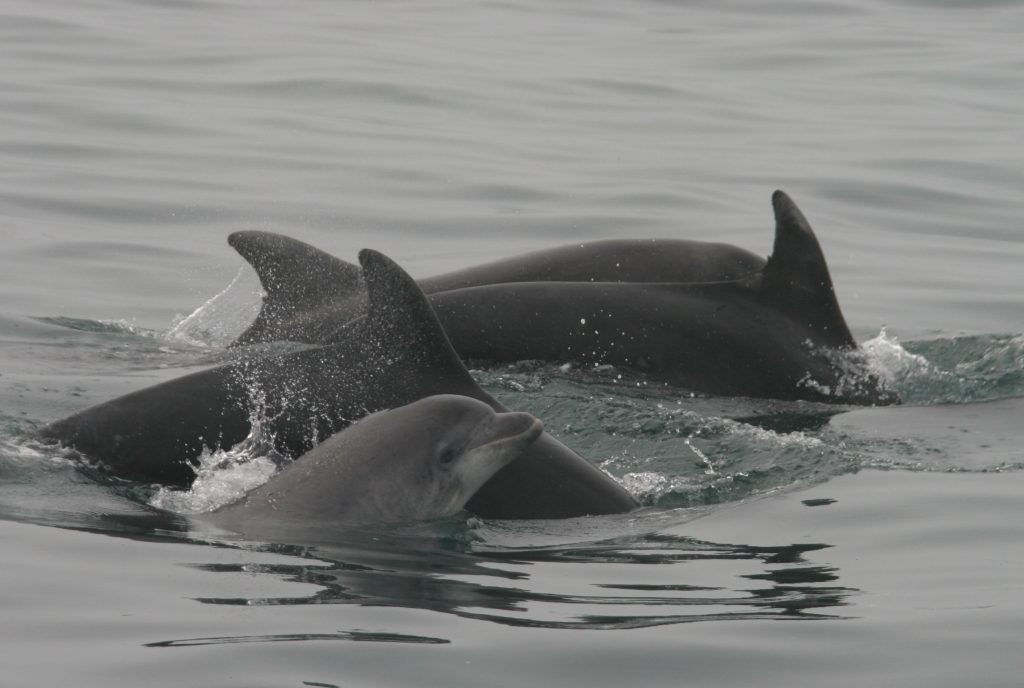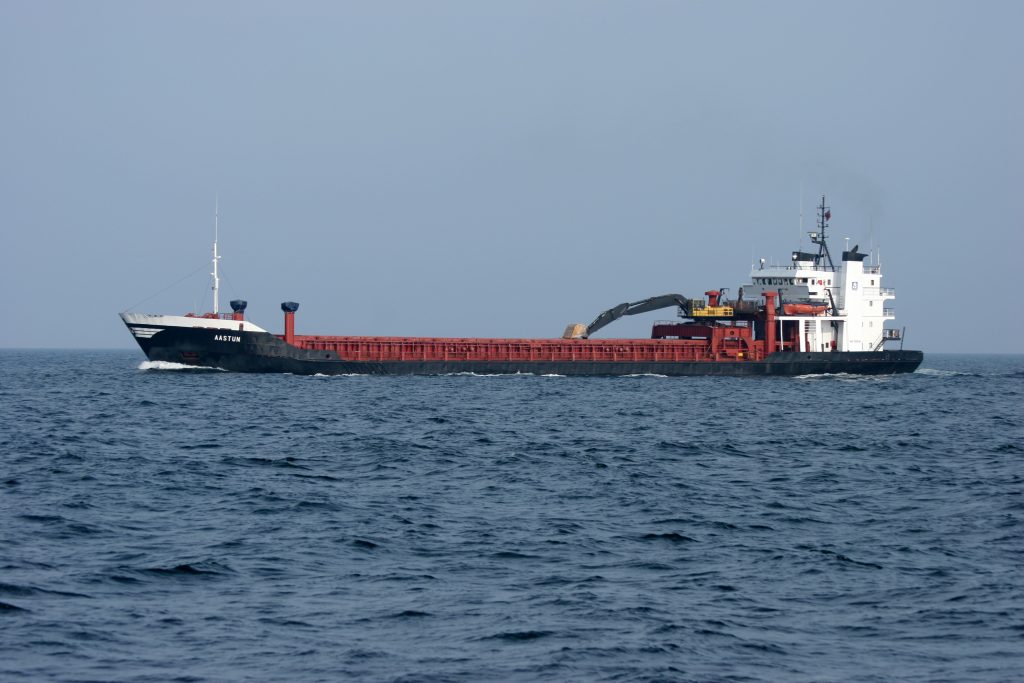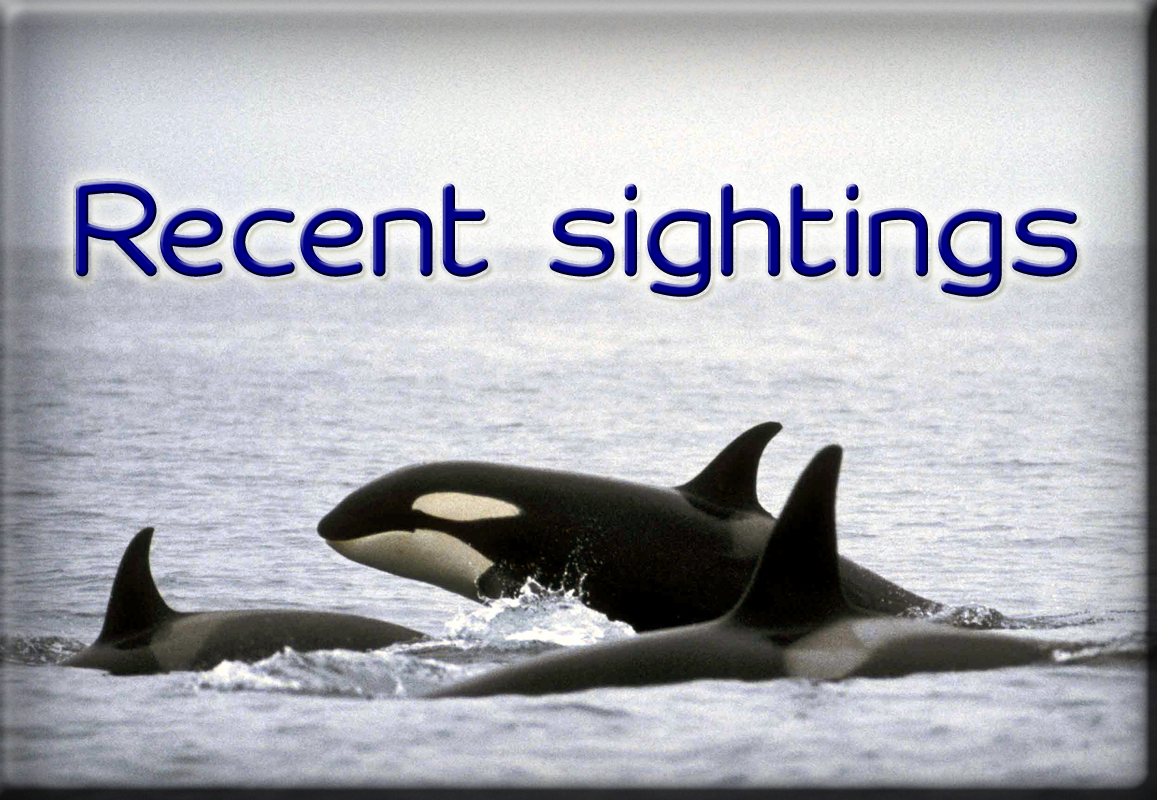Noise pollution in the ocean is a major problem, and it’s getting louder. A study has recently been undertaken on the subject of human-caused noise in the marine environment – the first comprehensive assessment of this important issue. The study points out that acoustic pollution is as significant a threat to marine life as overfishing, climate change and other forms of pollution, but that it is being overlooked. In a review of studies assessing the effects of noise pollution in the ocean, 90% concluded that it caused significant harm to marine mammals and 80% found that there were also detrimental impacts on fish and invertebrates.
Hearing is crucial to cetaceans. It’s their most sensitive sense and is fundamental to every aspect of their lives. In fact, most marine species utilise sound as their principle sense. In the murky depths of the sea, vision can only get you so far, but sound can cover much larger areas. Whales and dolphins depend upon their excellent sense of hearing to communicate with each other, feed and navigate. Sound waves underwater are more powerful than in air, and they travel a considerable distance. This means that the unnatural noises invading the oceans can disrupt marine life over vast areas. The fact that ocean warming increases the acidity of the water makes it worse, as more acid water allows sound waves to travel even further.

Excessive noise severely affects the ability of whales and dolphins to effectively communicate with their pods, find their way and forage or hunt, which are necessary for them to lead normal, healthy, natural lives. It also causes stress, confusion and disorientation, and has been linked to mass strandings of whales, such as the beaked whales in Scotland last year. Excess noise can also mean increased movement of cetaceans as they attempt to avoid it, and can displace them from their natural feeding and breeding grounds. Very loud noises such as underwater blasts can irreparably damage their hearing and lead to death.
Causes of acoustic marine pollution are copious and include shipping, motor boats, oil rigs, wind farms, detonation of old WW2 bombs, ocean floor drilling, construction and the use of sonar by military and fishing boats. Military sonar is perhaps the most damaging. All of these things have increased in capacity over recent years, and oceans have been getting progressively noisier since the industrial revolution. Around the UK, ocean traffic is relentless. In the North Sea there are more than 400,000 ship movements per year. Seismic exploration for oil and gas is now taking place in waters west of Scotland which are very rich in cetacean life.

There are solutions out there to reduce marine noise that would be easy to implement. In terms of boats, new propeller designs, switching to electric motors and reductions in speed can all help hugely. Other activities need to be strictly monitored with strong regulations in place to reduce disturbance and protect marine life. Military sonar, being the most potent auditory threat, needs to be significantly limited.
“We need tenacious policies to monitor the activities causing marine noise, propose suitable solutions and enforce new rules”.
The strict lockdown that began in March 2020 due to the coronavirus outbreak must have been bliss for marine life, as the reduction in human activity across the globe would have all but silenced the ocean in terms of anthropogenic noise. The beneficial effects of a quieter ocean would be fairly immediate, as the negative impacts quickly decline when the source of the noise is removed.
We cannot keep seeing the ocean as something to be exploited. For our sake and that of the wonderful creatures that live there and depend upon it for their survival, it needs to be better protected. In addition to the many other threats to the ocean, such as plastic pollution, overfishing, warming and acidification, the detrimental effects that noise pollution has on marine life need to be acknowledged and accepted, and actions taken to mitigate them.
All life began in the ocean, and we owe it everything.
Kayleigh
Sea Watch Volunteer
Feature Blogger
Sources and further information
- The soundscape of the Anthropocene ocean | Science (sciencemag.org)
- MTN 102:25-26 Oceans of Noise: A WDCS Science Report (seaturtle.org)
- Response and Responsibility: Regulating Noise Pollution in the Marine Environment: Journal of International Wildlife Law & Policy: Vol 10, No 2 (tandfonline.com)
- The impact of ocean noise pollution on marine biodiversity, Lindy Weilgart PhD, International Ocean Noise Coalition
- The impacts of anthropogenic ocean noise on cetaceans and implications for management (cdnsciencepub.com)
- Listening to the Deep: Live monitoring of ocean noise and cetacean acoustic signals – ScienceDirect
- Managing and Regulating Underwater Noise Pollution | SpringerLink
- Mysterious deaths of whales off Scottish coast linked to MoD war games | Metro News
- Establishing Reliable Foundations for the International Scientific Investigation of Noise Pollution in the Oceans – Gillespie – 2006 – Review of European Community & International Environmental Law – Wiley Online Library
- International Regulation of Transboundary Pollutants: The Emerging Challenge of Ocean Noise 6 Ocean and Coastal Law Journal 2001 (heinonline.org)
- Sea Watch Foundation » Dolphins and whales are living in noisy waters
- Sea Watch Foundation » Cetacean Threats
- Reducing Noise Pollution from Commercial Shipping in the Channel Islands National Marine Sanctuary: A Case Study in Marine Protected Area Management of Underwater Noise: Journal of International Wildlife Law & Policy: Vol 10, No 2 (tandfonline.com)
- Cacophony of human noise is hurting all marine life, scientists warn | Marine life | The Guardian
- Noise pollution ‘drowns out ocean soundscape’ – BBC News
- In the Oceans, the Volume Is Rising as Never Before – The New York Times (nytimes.com)
- Evans, P.G.H. Canwell, P.J. and Lewis, E.J. (1992) An experimental study of the effects of pleasure craft noise upon bottle-nosed dolphins in Cardigan Bay, West Wales. Pp. 43-46. In: European Research on Cetaceans – 6. (Editor P.G.H. Evans). European Cetacean Society, Cambridge, England. 254pp.
- Wursig, B. and Evans, P.G.H. (2001) Cetaceans and humans: influences of noise. Pp. 555-576. In: Marine Mammals: Biology and Conservation (Editors P.G.H. Evans and J.A. Raga). Kluwer Academic/Plenum Press, London. 630PP.

























Pingback: Sea Watch Foundation » A whale of a dive: the wonder of beaked whales
Pingback: Sea Watch Foundation » Dipping our toes into marine pollution
Pingback: Oceans of noise – Kayleigh Ann Writing
Pingback: Oceans of noise – Kayleigh Ann Writing